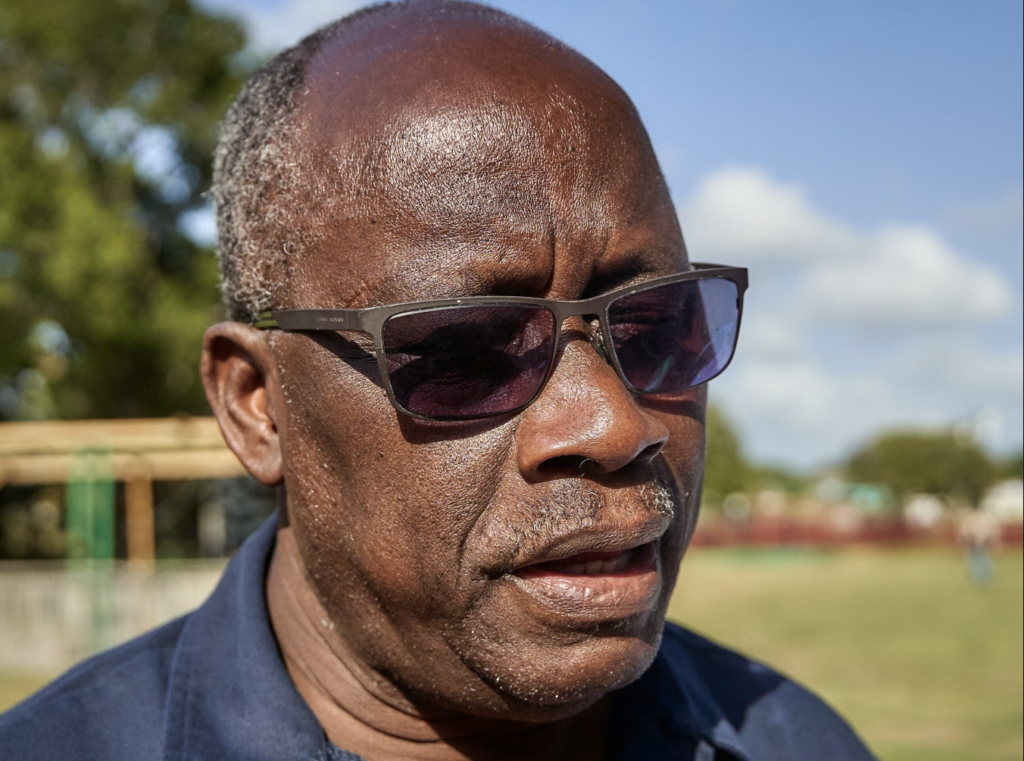Barbados Agricultural Society CEO Warns of Threat to Nation's Food Security from Farmland Conversion

September 3, 2024
Barbados Agricultural Society CEO James Paul warns of the threat to food security as farmland is converted for residential and commercial use, impacting agricultural production and young farmers' access to land.
The nation’s ability to feed itself is under threat as more farmland is being converted for residential and commercial use, Chief Executive Officer of the Barbados Agricultural Society (BAS), James Paul, has warned.
He described a “worrying trend” of large-scale landowners abandoning fertile land, allowing it to become overgrown, and then applying for a change of use for residential development through the Town Planning Department.
Paul raised alarm on the recent erection of two large signs at the entrances of Constant Plantation in St George, indicating that 16.91 acres of land are for sale, having been approved for residential and commercial development.
“This is the agricultural belt. It is wrong,” Paul declared. “There are other developments that are not even fully taken up, where there is low demand, and yet we see this type of thing being approved. This is not the only case. I am hearing about land in Cottage, in the same parish, being repurposed as well. These are lands that, in some instances, are still in production.”
In an interview with Barbados TODAY, Paul expressed deep concern about the implications of the change-of-use practice, calling for an urgent investigation to determine whether landowners are genuinely unable to maintain agricultural production or if they are deliberately allowing land to fall into disuse as part of a strategic scheme.
“This is appalling and significantly impacts our island’s ability to be food secure,” Paul said.
He emphasised the need to protect agricultural land, particularly for young farmers eager to lease or purchase land but finding it increasingly difficult to do so.
“Agricultural land is being alienated at an alarming rate,” he warned. “The alarm bells need to be sounded at this point in time. We are just going too far.”
Paul appealed to officials to reject these land-use change requests. “I really want to urge the authorities at Town and Country Planning to resist granting such approvals. There is a temptation to move land out of agriculture, but maybe the State needs to explore ways to transfer ownership to those genuinely interested in farming. We need new and better ownership structures that facilitate agricultural use.”
The BAS chief called for the introduction of a capital gains tax to address the issue, arguing it could curb speculation on agricultural land. “The ability of landowners to profit from the sale of agricultural land can be easily mitigated by implementing a capital gains tax. This would remove much of the profit motive behind these speculative sales and could provide additional revenue for the state, especially as we seek to increase tax income.”
Paul stressed the importance of understanding why large-scale landowners cease cultivation and proposed a programme to assist them in maintaining agricultural production. “Perhaps we need to address the concerns of these landowners and see how we can help them stay in agriculture. We need a conversation about their difficulties and how we can support them.”
He added: “At the alarming rate that agricultural land is being repurposed, we cannot continue like this. If we are serious about food security and making agriculture viable, we must preserve the very asset required for the industry’s success.”
Paul also noted that the reduction of arable land is a global issue. “Institutions like the FAO (Food and Agriculture Organisation) are raising concerns about the alienation of agricultural land. We talk about achieving sustainable development goals, but how can we be serious about this in Barbados when we continue to allow land to be moved out of agriculture? It’s inconsistent, and we are speaking out of both sides of our mouths.”
Paul acknowledged that the Ministry of Agriculture had, in some instances, successfully pushed back against the development of prime agricultural land. But he remained concerned that substantial tracts of fertile land were still being repurposed.
The issue gained renewed attention earlier this year amid protests against a proposed housing project at Newton Plantation in Christ Church, which would see 12.2 acres of land divided into 58 residential lots. At the time, Minister of Agriculture Indar Weir stated that any approvals for a change of use were granted only after careful consideration, ensuring that the island’s food security would not be compromised.
sheriabrathwaite@barbadostoday.bb


